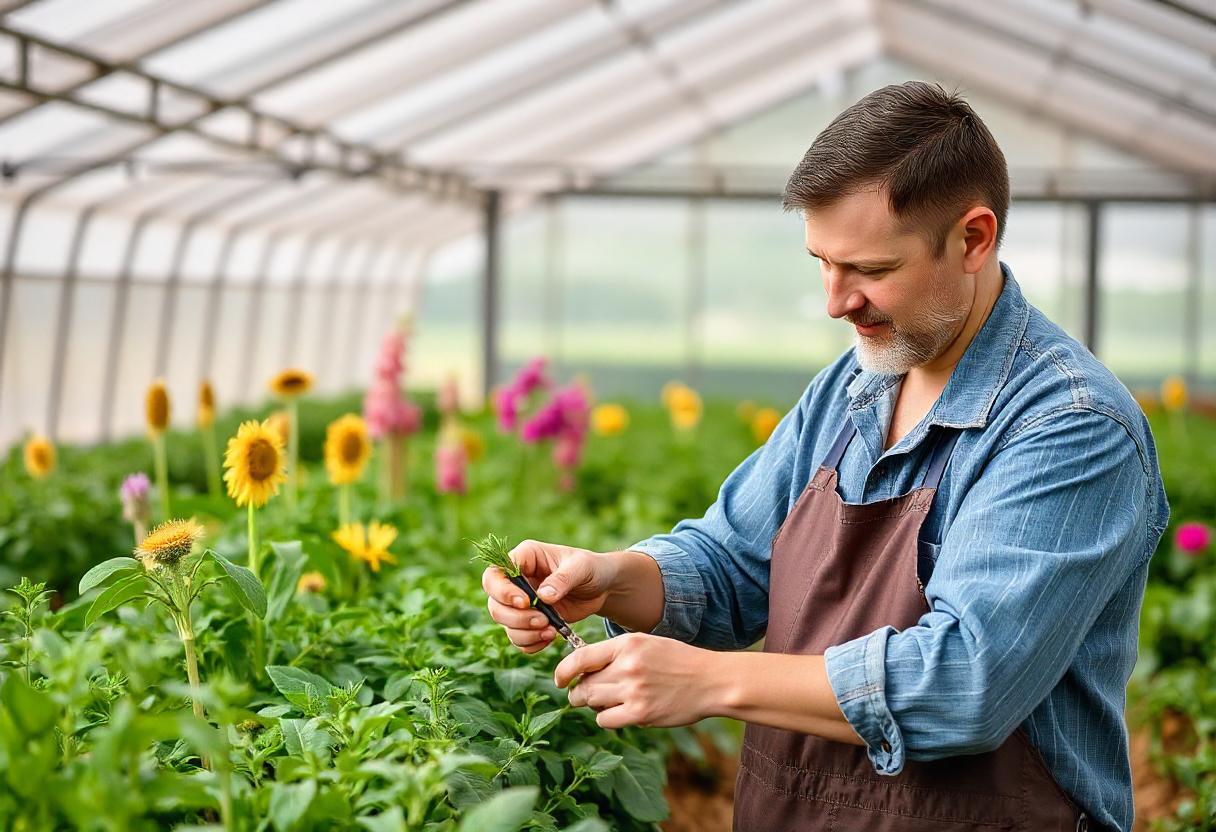
Agriculture science is a multidisciplinary field that encompasses the study and application of scientific principles to enhance agricultural productivity and sustainability. It integrates various scientific disciplines to address challenges related to crop and livestock production, soil management, and environmental conservation. The goal of agriculture science is to improve food security, optimize resource use, and promote sustainable farming practices.
Core Areas of Agriculture Science
Agriculture science covers several key areas, each focusing on different aspects of agricultural systems:
- Crop Science: This area involves the study of plant biology, including crop development, breeding, and management. Researchers in crop science work to improve crop yields, resistance to pests and diseases, and adaptation to environmental conditions.
- Animal Science: Focuses on the biology and management of livestock and poultry. Animal science includes studies on animal nutrition, genetics, breeding, and health. The objective is to enhance animal production efficiency, welfare, and product quality.
- Soil Science: Concerned with understanding soil properties, fertility, and conservation. Soil scientists study soil composition, structure, and processes to develop methods for improving soil health and productivity. They also work on sustainable practices to prevent soil erosion and degradation.
- Agricultural Engineering: Involves the design and implementation of machinery, equipment, and technology for agricultural use. Agricultural engineers work on innovations in irrigation systems, machinery design, and precision agriculture technologies to enhance farm operations.
- Environmental Science: Addresses the impact of agricultural practices on the environment. This area includes studying ecosystems, water resources, and pollution control. Environmental scientists develop strategies for sustainable agriculture that minimize negative environmental impacts.
Key Research Areas
Agriculture science research focuses on solving practical problems and advancing knowledge in the field. Key research areas include:
- Crop Improvement: Research on genetic modification, plant breeding, and biotechnology to develop crops with higher yields, better nutritional value, and increased resistance to pests and diseases.
- Sustainable Farming Practices: Studies on techniques such as organic farming, conservation tillage, and agroecology that aim to enhance sustainability and reduce the environmental footprint of agriculture.
- Soil Health and Fertility: Investigations into soil management practices, nutrient management, and the effects of different farming methods on soil health and productivity.
- Livestock Management: Research on improving animal health, welfare, and productivity through better nutrition, genetics, and disease management.
- Climate Change Adaptation: Exploring how climate change affects agriculture and developing strategies to adapt farming practices to changing environmental conditions.
Applications of Agriculture Science
Agriculture science has practical applications across various sectors of the agricultural industry:
- Farm Management: Applying scientific principles to optimize farm operations, including crop rotation, pest management, and resource allocation. This helps farmers increase efficiency and profitability.
- Food Production: Enhancing food safety and quality through scientific research on food processing, preservation, and storage. Agriculture science ensures that food products meet safety standards and nutritional requirements.
- Environmental Conservation: Developing and implementing practices that protect natural resources, reduce pollution, and promote biodiversity. This includes efforts to manage water resources, prevent soil erosion, and conserve wildlife habitats.
- Policy and Regulation: Informing agricultural policies and regulations based on scientific research. This helps in creating policies that support sustainable agriculture, food security, and environmental protection.
Education and Training
Education in agriculture science typically involves degrees and courses in areas such as agricultural science, crop science, animal science, and environmental science. Students learn about the scientific principles underlying agricultural practices and gain hands-on experience through laboratory work, field studies, and internships.
Advanced degrees in agriculture science, such as master’s and doctoral programs, offer opportunities for specialized research and development in various subfields. These programs prepare graduates for careers in research, academia, and high-level industry positions.
Future Trends
The field of agriculture science is evolving rapidly with advancements in technology and research. Emerging trends include:
- Precision Agriculture: Utilizing technology such as GPS, drones, and sensors to monitor and manage crops and livestock with high precision. This approach improves efficiency and reduces resource use.
- Biotechnology: Leveraging genetic engineering and molecular biology to develop new crop varieties and livestock breeds with enhanced traits.
- Climate Smart Agriculture: Adapting agricultural practices to mitigate the impacts of climate change and improve resilience in farming systems.
- Digital Agriculture: Integrating digital tools and data analytics to enhance decision-making, farm management, and productivity. This includes the use of big data, machine learning, and artificial intelligence in agriculture.